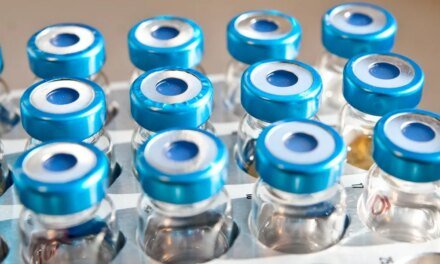Antioxidants are essential for general well-being, including physical health, but they must been taken in the correct amounts. These nutrients help protect the body from damage caused by free radicals, which are unstable molecules produced by environmental variables such as pollutants, UV rays, and tobacco. Free radicals may impair good cell and cause aging and cancer-related conditions. According to studies, antioxidants may aid in preventing or halting this damage. Antioxidants are naturally found in foods like fruit, vegetables, beans, and particles, and can also be taken as nutrients. However, excessive consumption of nutrients can be dangerous, so it’s best to consult a medical provider before starting any new program. By neutralizing free radicals, research published in The Journal of Nutritional Biochemistry have demonstrated that a diet high in flavonoids may lower the risk of chronic diseases. Moreover, antioxidants like vitamin C and E have been linked to improved defensive function and circulatory disease protection. Polyphenols ‘ Contributions to Male Sexual Health Recent research has highlighted the importance of antioxidants. A research published in Fertility and Sterility found that reactive stress, caused by an imbalance between free radical and flavonoids, may affect male function, leading to male fertility. Antioxidants help prevent male cell damage and promote the success of sperm cell growth by neutralizing oxidative stress. Vitamin C, one of the most well-known polyphenols, plays a major role in egg health. According to a study conducted by the University of Texas, taking 500 milligrams of vitamin C everyday reduced sperm clumping by 23 % in a year. Sperm count and movement ( the ability of sperm to move ) were also improved. Another study published in Reproductive Biology and Endocrinology found that vitamin C supplementation improved sperm quality and reduced DNA fragmentation in egg cell, a crucial factor in male fertility. Vitamin E is another effective antioxidant. According to a study conducted in Andrology, men who consumed 100 milligrams of vitamin E daily showed increased sperm mobility and a drop in sperm abnormalities. Vitamin E helps to make sperm more flexible and move toward the egg by protecting the lipid ( fat ) layers of sperm membranes. According to studies, taking 200 to 400 micrograms of vitamin E per day is regarded as safe, but higher doses of more than 1, 000 grams may result in side effects. Zinc, a record mineral, is important for male sexual health. According to studies published in Biological Trace Element Research, metal plays a vital role in hormone production, sperm production, and sperm motility. According to a study involving 37 people who struggled with fertility, getting 60 grams of copper per day considerably increased sperm count and hormone levels. According to another study published in The Journal of Reproductive Medicine, men who had reduced metal levels had lower sperm quality and a higher risk of fertility. The recommended daily intake of zinc for mature males is 11 grams, but medical doses may get higher under medical supervision. Making Lifestyle Changes to Promote Sexual HealthIn addition to taking flavonoids, men really adopt lifestyle changes that promote sexual health. Alcohol use too much can reduce testosterone levels and lower sperm quality, so reducing it is necessary. According to a study published in Alcohol Research & Health, chronic alcohol consumption resulted in an abnormal sperm morphology ( shape ) and a 50 % decrease in sperm production. More affecting sexual health is the presence of drinking, which also prevents the absorption of crucial vitamins and minerals, such as zinc. Tobacco is another significant factor. The body produces thousands of dangerous toxins, many of which are free radicals, from cigarettes. In a study that was published in Human Reproduction, it was discovered that men who smoked had a 23 % lower sperm concentration and a 13 % lower sperm motility compared to non-smokers. Quitting cigarettes can significantly improve the quality of sperm and overall sexual health. Vitamins C, E, and zinc, which are known to improve physical health, are necessary in the right dosages. Increased intake can cause toxicity and digestive issues. It is always advisable to consult a physician before beginning any product. With the right stability, antioxidants can protect against oxidative stress, increase sperm function, and promote overall health.
Supply website
How Antioxidants Promote Sexual Health and Well-being





